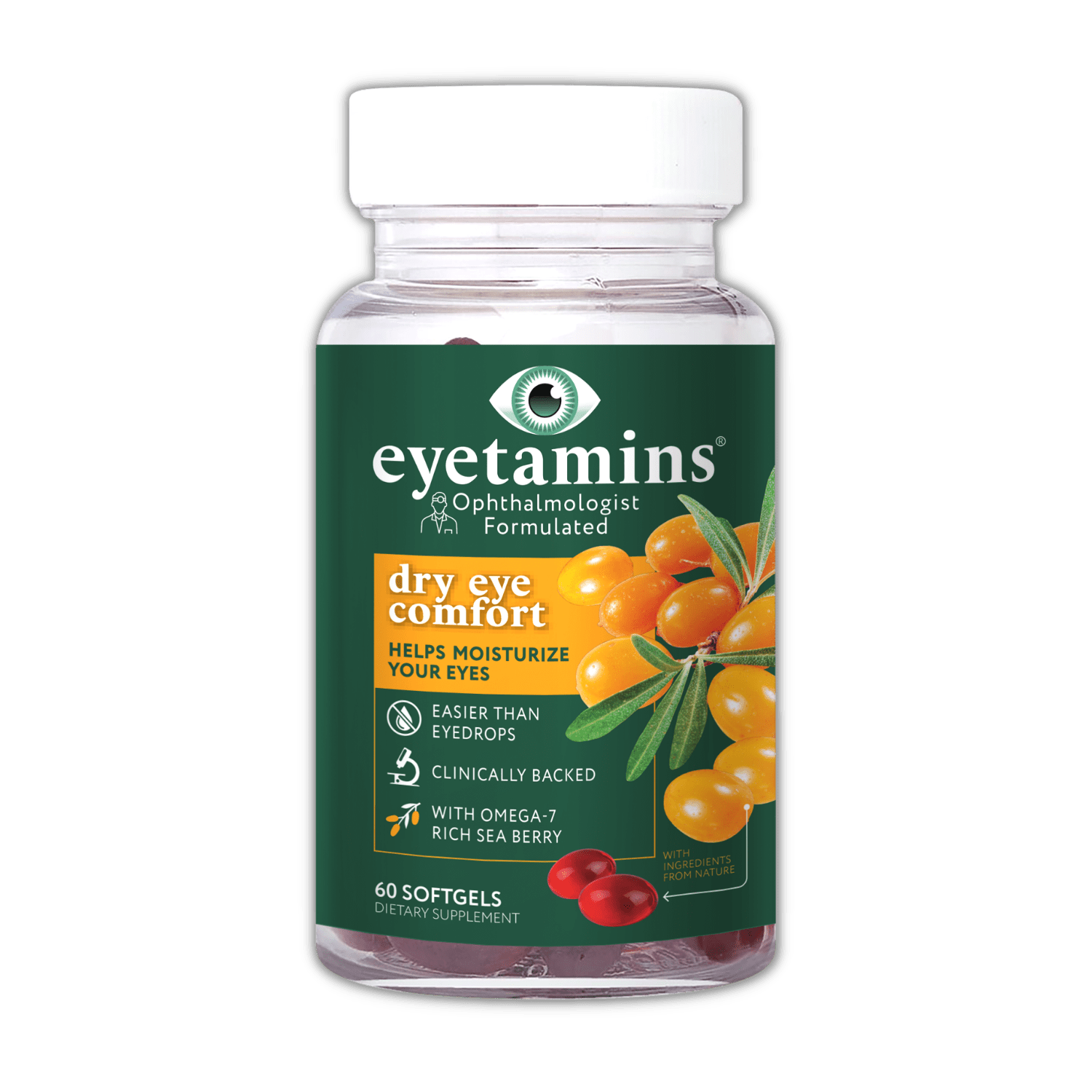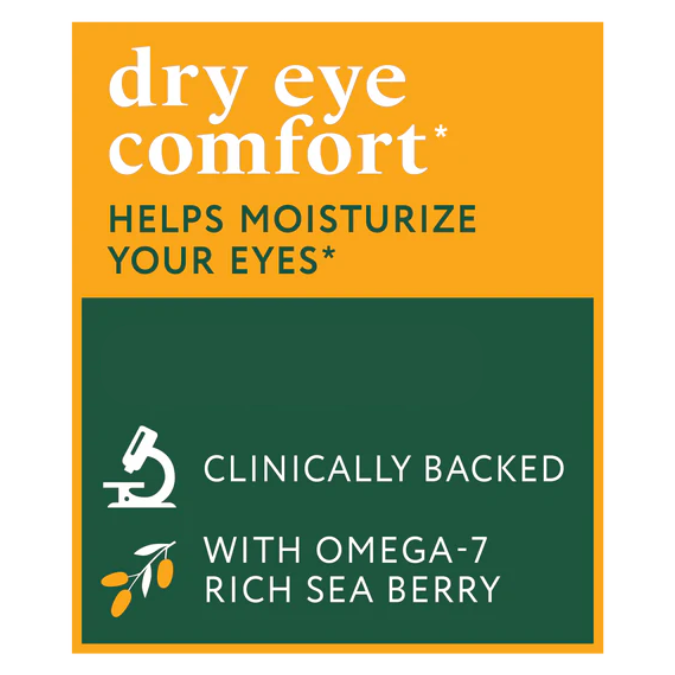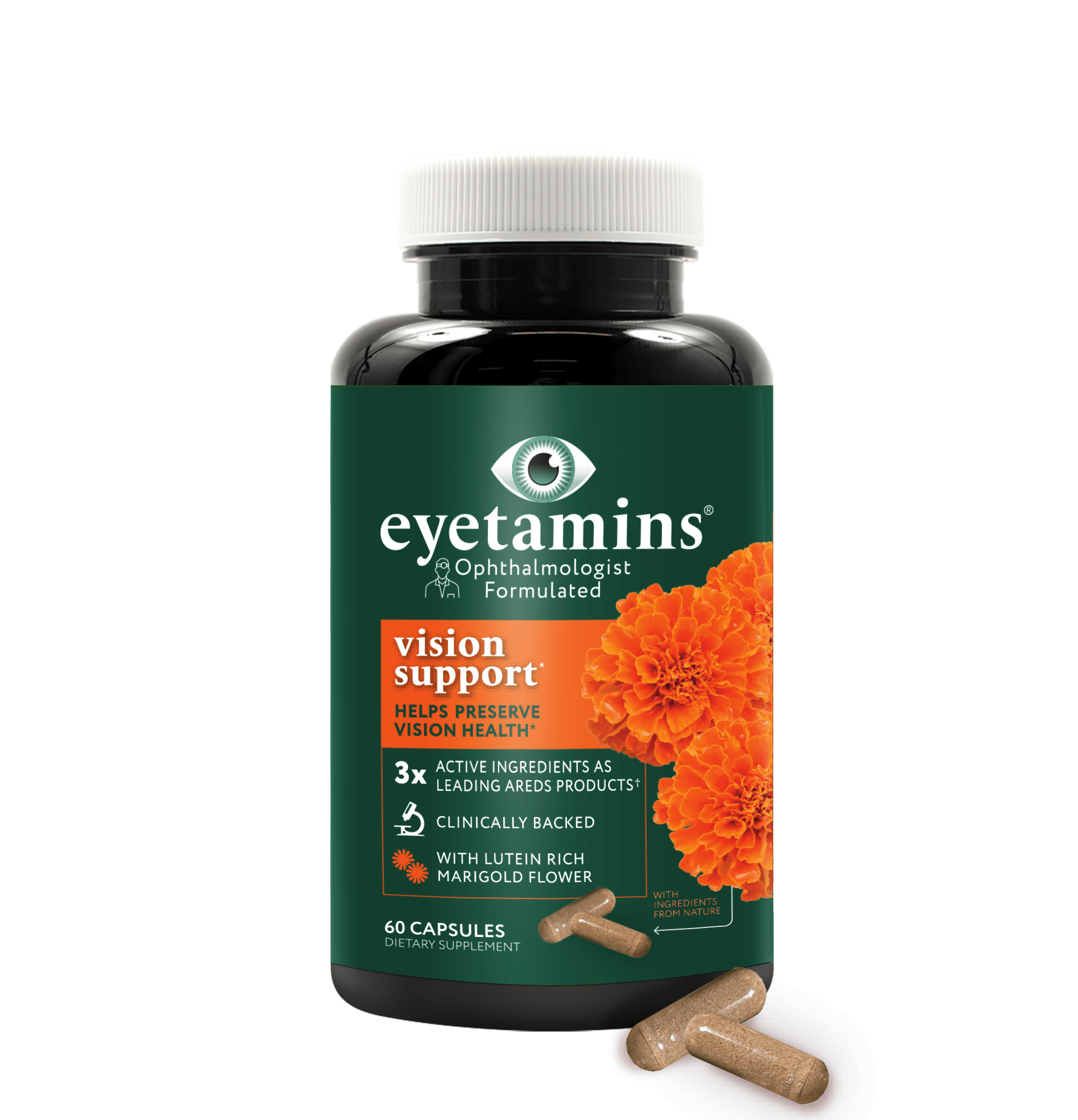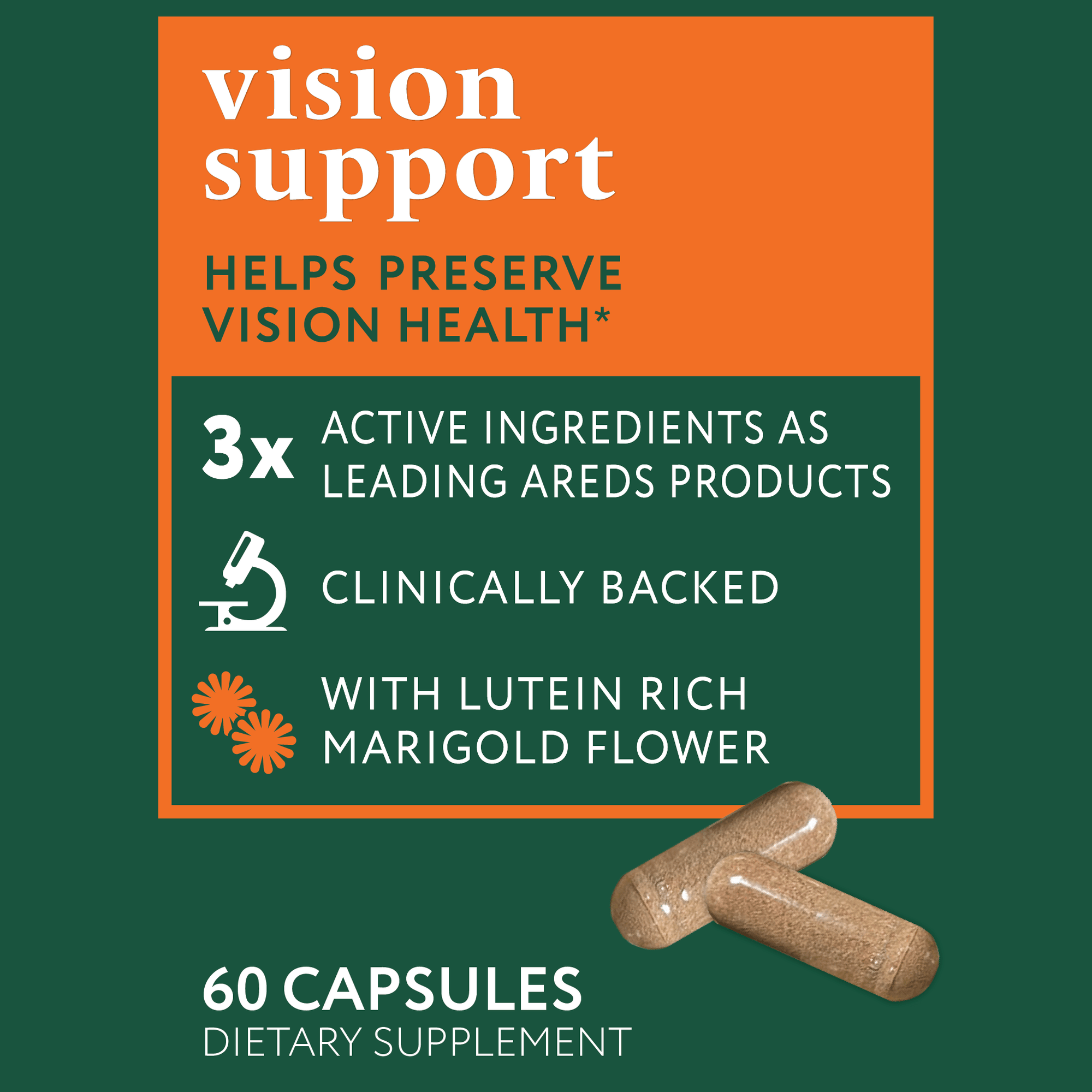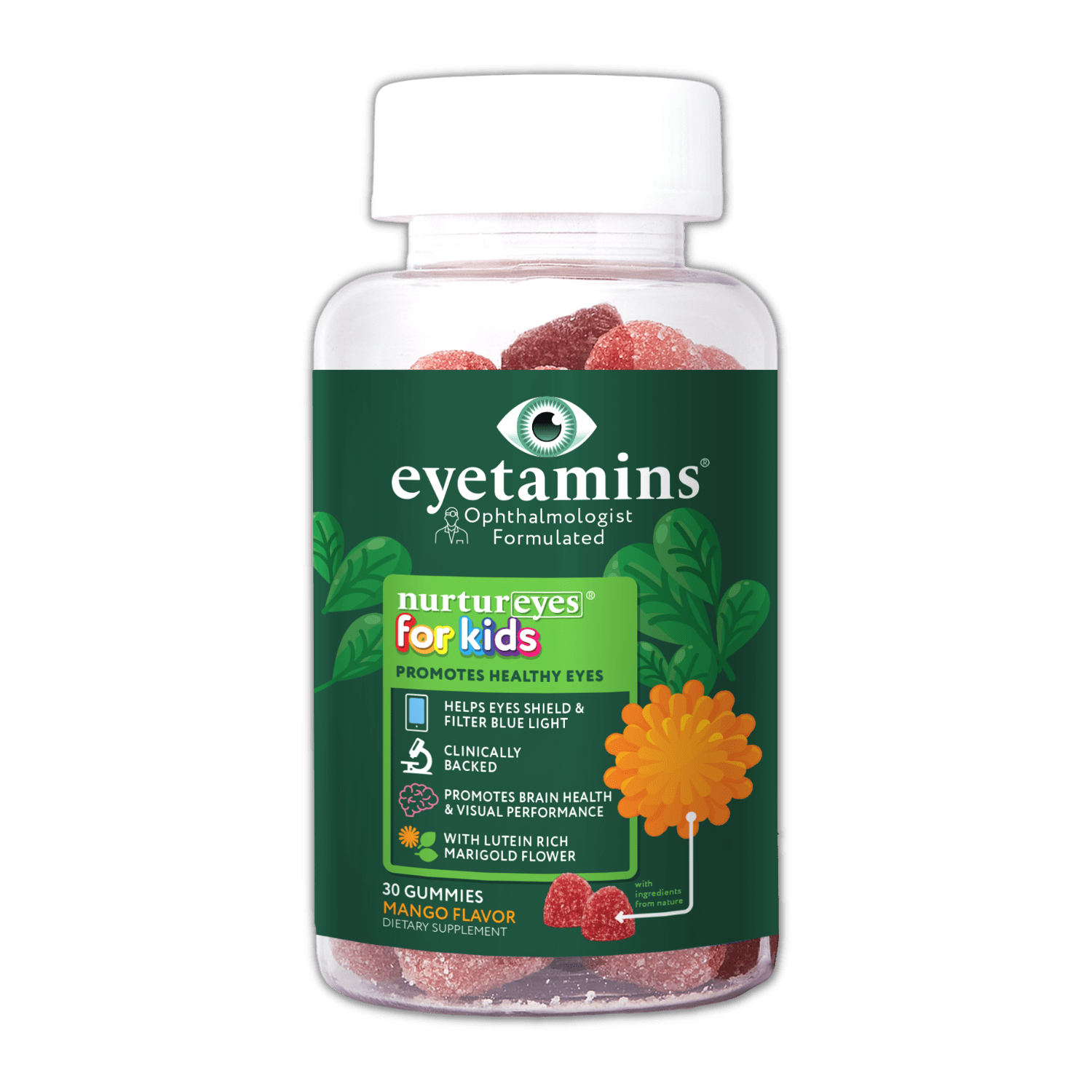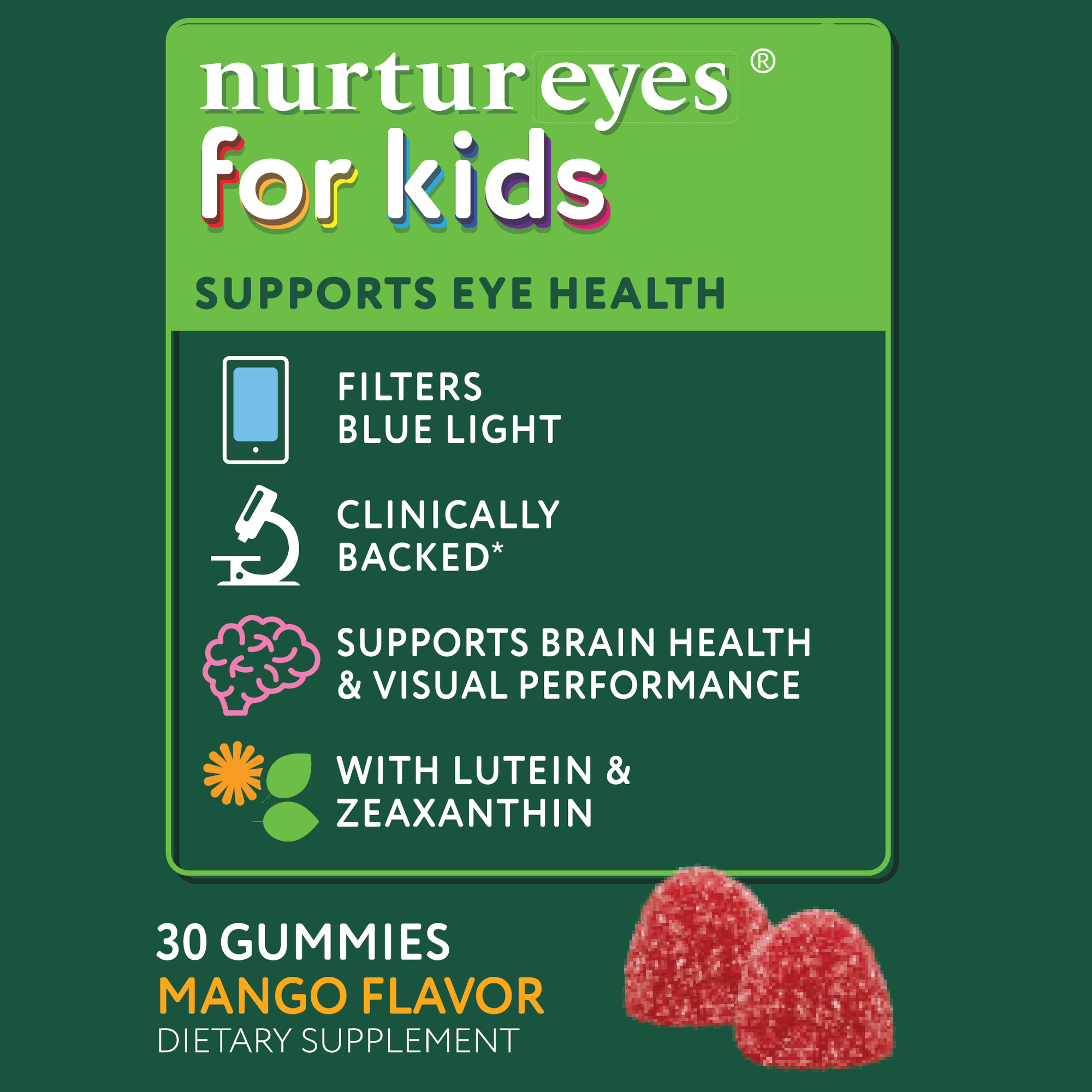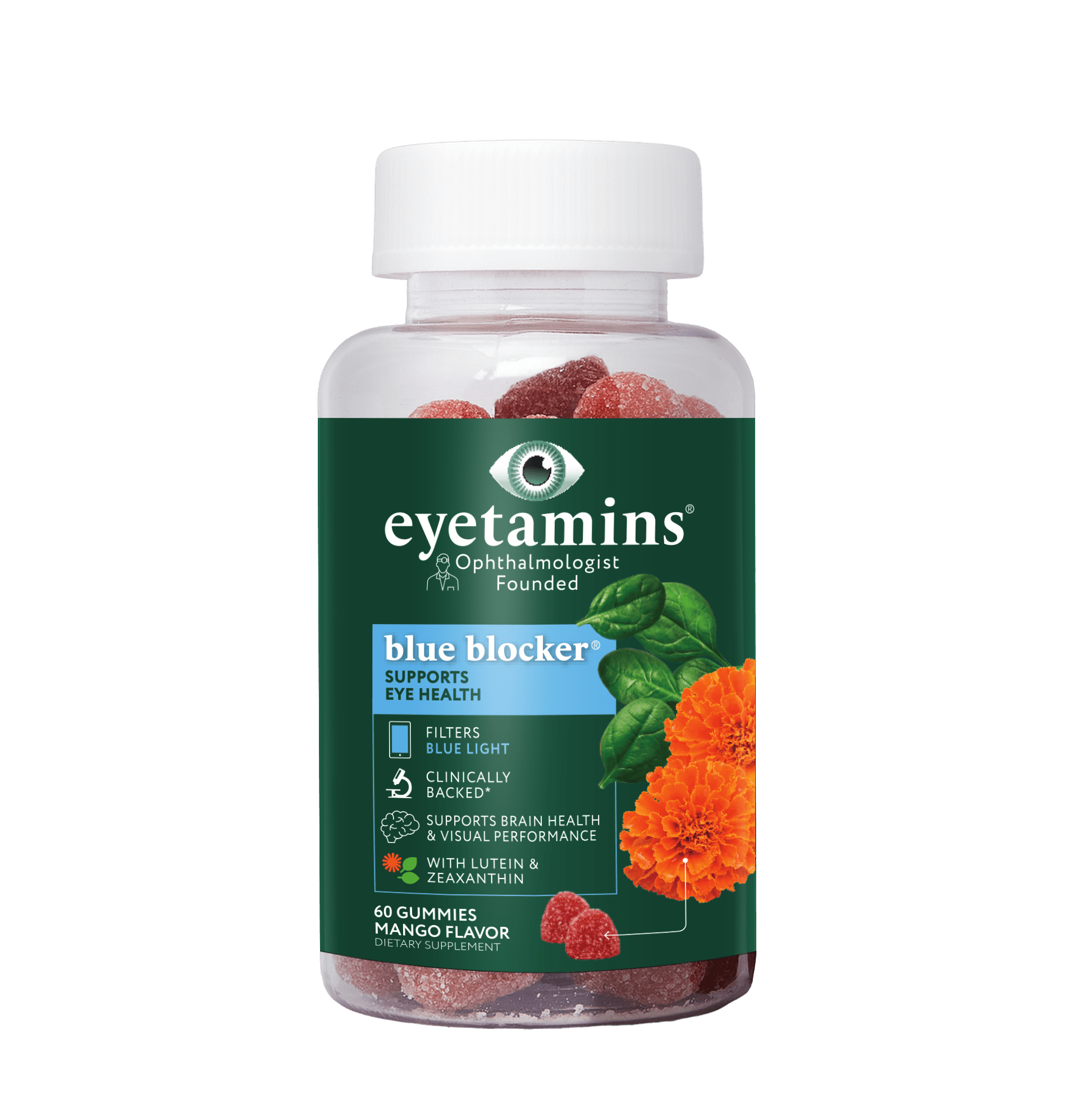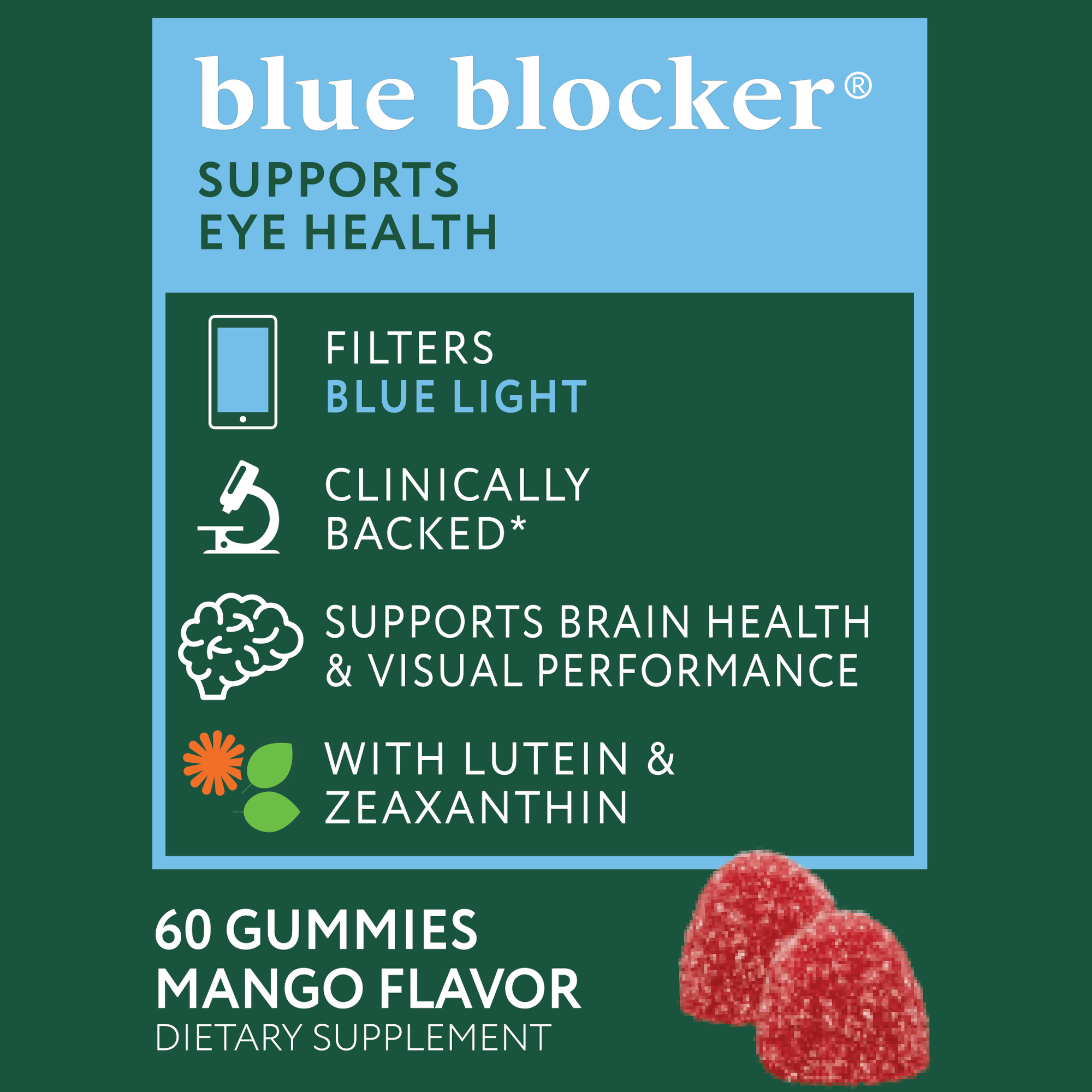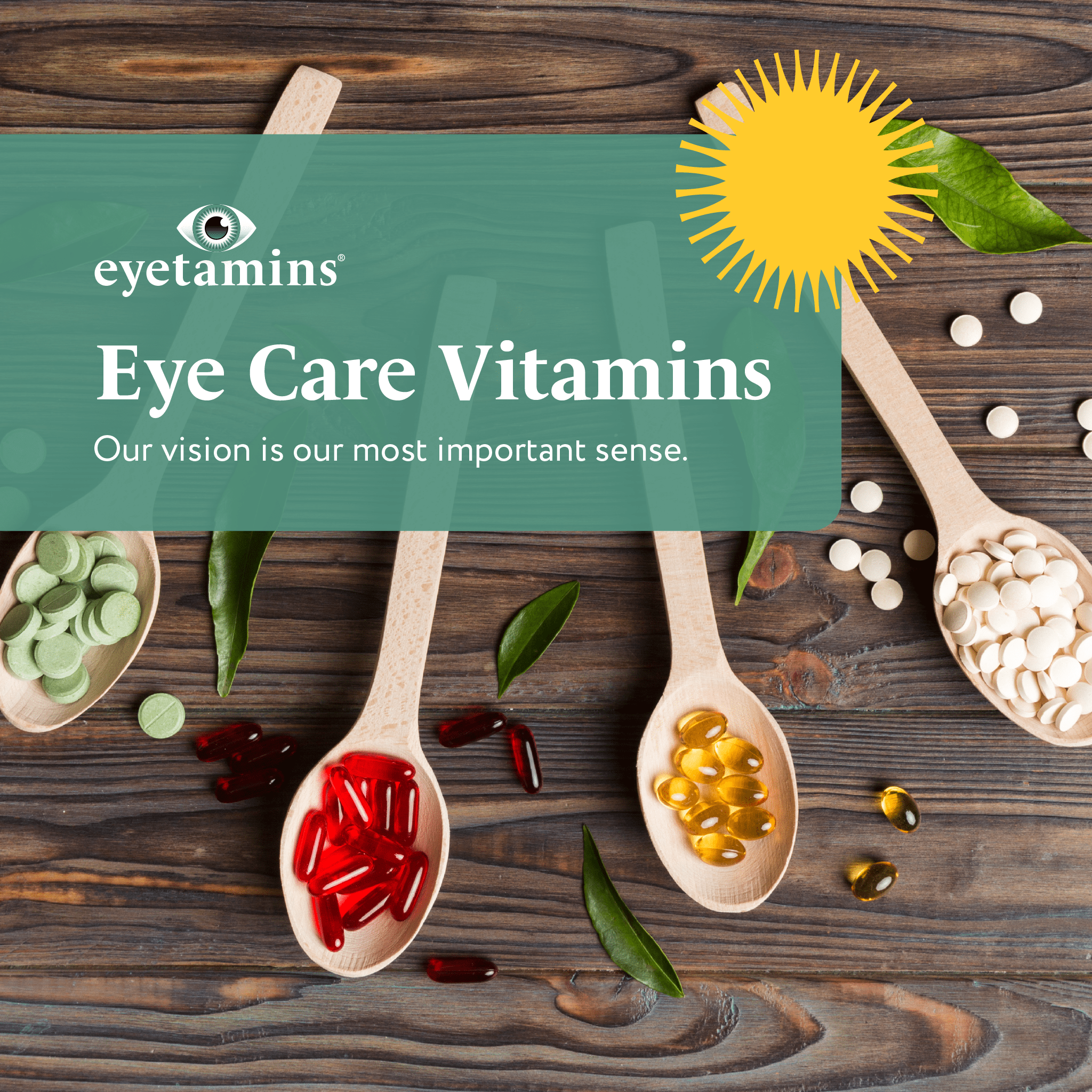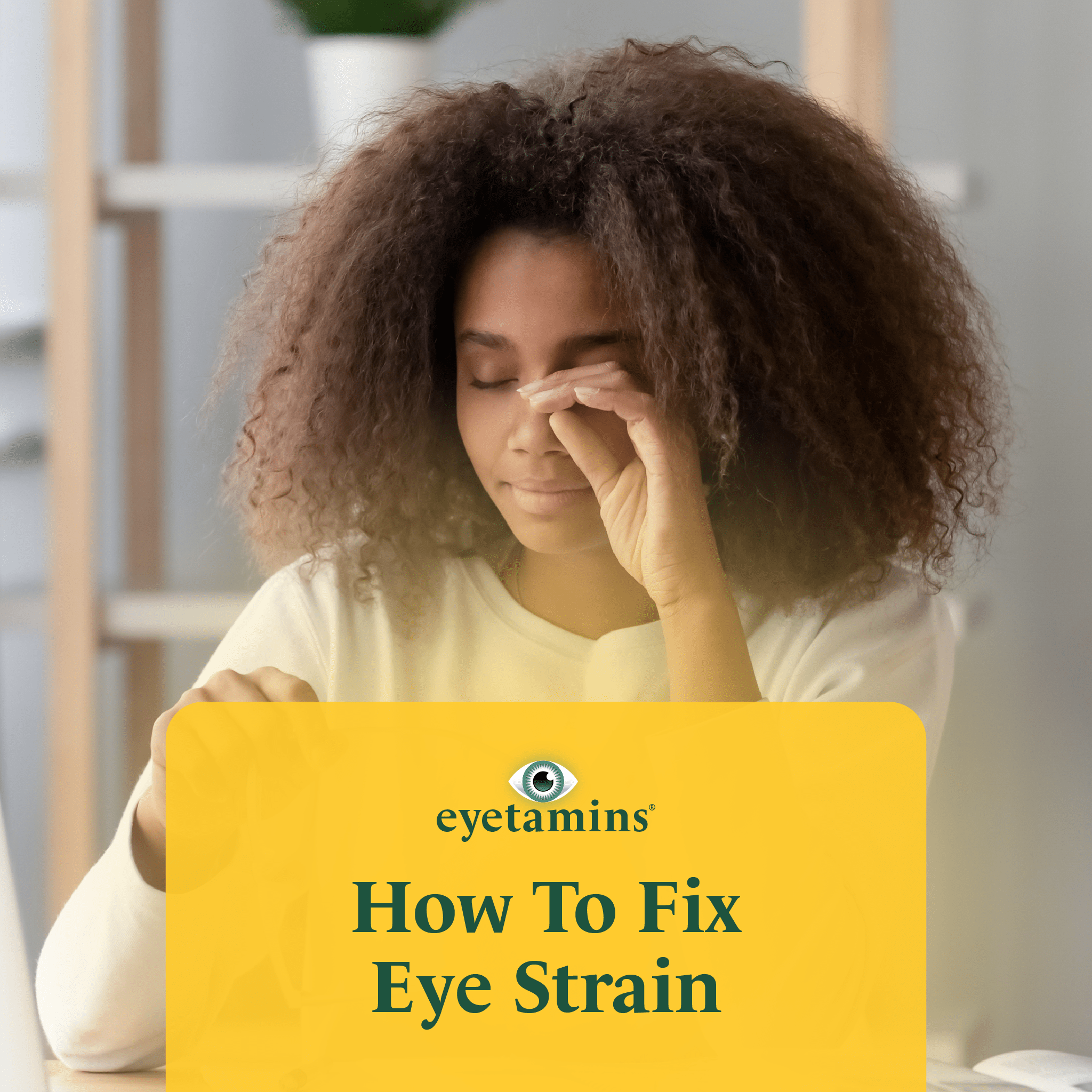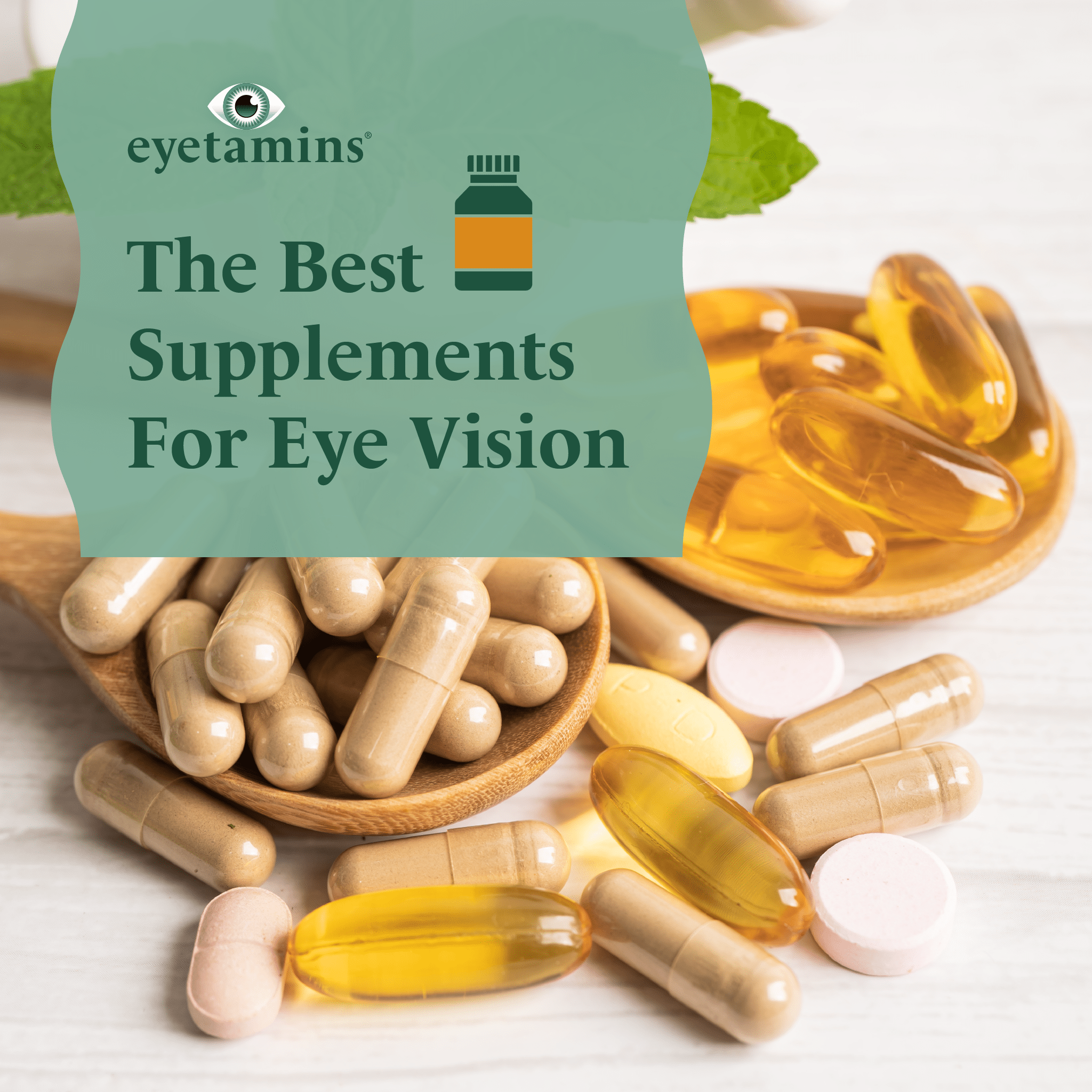· By Kaushal M. Kulkarni, M.D.
How Eye Vitamins Benefit Brain Performance
Have you thought about taking eye vitamins to boost your…brain?
Yep, your brain. Believe it or not, your brain and eyes share quite the connection, and it is because of this connection that you are able to not only see, but make sense of what you are seeing. This fragile connection depends on myriad parts working as they should, which they cannot do unless they receive the right vitamins and nutrients.
It isn’t a coincidence that the same nutrients that are good for the eyes are also good for the brain. In this article, we break down the connection between your eyes and brain, and discuss the ways in which various vitamins benefit both important organs. Let’s get to it!

The Connection Between the Eyes and Brain
The eyes may get all the credit, but the truth is that you would not be able to see without your brain. The eyes and brain are intricately connected, and work together to take in, make sense of, and store visual images.
This process begins with the eyes. When light makes its way to the retina at the back of the eye, cells known as photoreceptors translate that light into electrical signals. These signals are then sent to the brain via the optic nerve. Once the signals reach the brain, they are turned into the images you see and recognize.
What Vitamins Are Good for Brain Health?
Omega-3 Fatty Acids
What Omega 3s Do For Your Brain: Omega-3 fatty acids act as an anti-inflammatory for the brain. By reducing inflammation, Omega-3s encourage sufficient blood flow and trigger the restoration of brain tissue. Studies have shown that a deficiency of Omega-3s can speed up brain aging, while proper doses improve cognitive function and decrease the risk of developing dementia.
What Omega 3s Do For Your Eyes: Omega-3 fatty acids also work as anti-inflammatories in the eyes. Research also suggests that Omega-3s can relieve symptoms of Dry Eye Syndrome.
Vitamin E
What Vitamin E Does For Your Brain: In research studies, Vitamin E has been found to act as an anti-inflammatory in the brain. Results show that it promotes brain performance.
What Vitamin E Does For Your Eyes: Recent research suggests that Vitamin E is an effective deterrent of free radicals – harmful and unstable molecules that damage healthy tissues and can lead to cataracts or age-related macular degeneration (AMD).

Vitamin C
What Vitamin C Does For Your Brain: Vitamin C plays an important role in the generation of brain cells and neural connections. Once the cells are formed, Vitamin C assists them with properly using certain neurological chemicals.
What Vitamin C Does For Your Eyes: Vitamin C helps strengthen your eyes’ structure by forming collagen.
Lutein
What Lutein Does For Your Brain: Lutein acts as an antioxidant in the brain, where it defends against harmful free radicals.
What Lutein Does For Your Eyes: Lutein (along with zeaxanthin) accumulates in the macula – that is, the part of the retina that is responsible for high-resolution vision. There, lutein protects the eye by acting as a natural filter for blue light.
Pro Tip: Ensure your eyes are receiving all the lutein they need to block harmful blue light by adding a supplement to your daily routine.
What Vitamins Are Good for Memory and Concentration?
Vitamin D3
What Vitamin D3 Does For Memory: Vitamin D, and specifically Vitamin D3, is active in brain tissue.
Choline
What Choline Does For Memory: Recent studies confirm a link between choline and improved cognitive performance. Seemingly, choline works to increase dopamine receptor densities, thereby playing a role in the brain’s healing process.
A Vitamin That Benefits The Brain And The Eyes
When you consider the above, it becomes easier to see the ways in which a daily eye supplement might benefit both your vision and your brain function.
Vision Support by Eyetamins is an ophthalmologist-approved eye vitamin that supports both eyesight and brain performance. Formulated based on the AREDS 2 study, Vitaleyes includes ingredients like vitamins C and E, lutein and zeaxanthin, zinc, and even some European bilberry, the latter of which is a powerful antioxidant that studies show supports healthy vision.
People Also Ask
1. What are the benefits of taking lutein?
Lutein is one of 600 naturally occurring carotenoids, or antioxidants, that work inside the body to protect your immune system from disease. In the eyes, the positive effects of lutein include protecting tissues from harmful sun rays, improving visual contrast sensitivity, and enhancing vision. In the brain and other parts of the body, lutein defends against the free radicals that may lead to other conditions.
2. Does lutein really work?
A number of scientific research studies have proven the benefits of lutein. In addition to defending the body against disease-causing free radicals, lutein acts as an anti-inflammatory in the eyes.
3. Can too much lutein be harmful?
In some very rare cases, people who have eaten too many carrots or citrus fruits have developed carotenemia, or a harmless yellowing of the skin. Otherwise, there are no known dangers to ingesting too much lutein.
4. Do eye vitamins really help?
A quality eye supplement formulated by ophthalmologists according to the AREDS2 study will include vitamins and nutrients that directly benefit the eyes, and likely benefit the brain. Though it is possible to get the right nutrients from the foods in your diet, taking a daily eye supplement will ensure your eyes are not lacking what they need in order to function at their best.
Conclusion
Though they may seem like two entirely different entities, the brain and the eyes work together to take in and make sense of anything and everything that you see. If your brain is not working properly, then neither will your eyes. Fortunately, there are daily vitamin supplements packed with the many nutrients that studies have shown benefit both the brain and the eyes.


